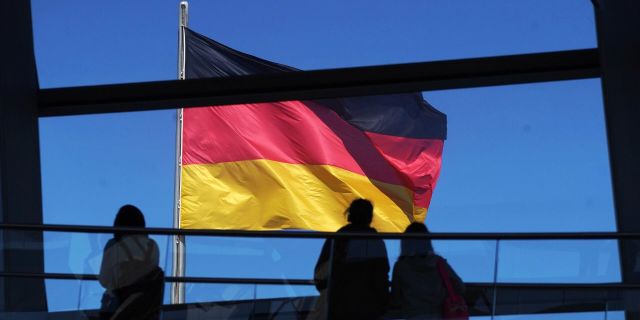The military operation in Ukraine "turned the most powerful countries of Europe against each other," says journalist Caroline de GruyterWASHINGTON, November 22.
/tass/. The situation in Ukraine has led to a serious deterioration in relations between Germany and France. This opinion was expressed by the columnist of the magazine "Foreign Policy" Caroline de Gruyter in an author's article published on Monday.
The conflict in Ukraine, she notes, "has turned the most powerful countries of Europe against each other like never before." "There are significant differences between France and Germany at the moment," she added. "Germany is accused of non-European behavior with its large national packages of energy subsidies for citizens and industry, the ongoing unilateral conclusion of deals with China and insufficient financial and material support for Ukraine," the article emphasizes. At the same time, the journalist continues, "there have almost always been problems between France and Germany in the EU, their solution often takes priority over solving the problems of other countries."
Between these two countries, the observer continued, "there was a division of labor that perfectly suited them, as well as the EU for many years." "Germany could ignore geopolitics and focus on trade. France, as the continent's only nuclear power with a serious army and a seat on the UN Security Council, could radiate power without focusing too much on French debts or deficits. However, it has long been clear that these relations have become unbalanced. In Europe, Germany often presents itself less than it really is, while France tends to the opposite," the author of the article believes.
The essence of the disagreement
According to de Gruyter, now "Paris is showering Berlin with criticism." "Why is Berlin starting to act on its own after not responding to [French President Emmanuel] Macron's numerous European initiatives for many years? Why did [German Chancellor Olaf] Scholz go to China alone? Why did Berlin order American F-35 fighters this year, and not French Rafale? The fact that Germany suddenly comes up with unilateral initiatives without coordination with France violates the delicate balance between Paris and Berlin," she said. As the journalist emphasizes, "the current disagreements between France and Germany go back to one of the main functions of the European Union: to prevent Germany from becoming dominant in Europe again."
After the start of the special military operation (SVO) of the Russian Federation in Ukraine, "fundamental differences suddenly came to the surface of EU policy, causing serious friction between the two countries," the journalist believes. She quotes the words of former special adviser to French President Francois Mitterrand and the first president of the European Bank for Reconstruction and Development, Jacques Attali. In his recent article, he pointed out the emergence of "differences in the long-term strategic interests" of Germany and France, which, in his opinion, can only be eliminated by significant steps forward in Europe. "However, since the memory of the Franco-German wars is being lost, he fears that the current leaders of both countries do not realize this sufficiently. As a result, "a war between France and Germany becomes possible again," de Gruyter quotes the economist as saying.
On February 24, Russian President Vladimir Putin announced the holding of the SVO in Ukraine in connection with the request of the leaders of the republics of Donbass for help. He stressed that Moscow's plans do not include the occupation of Ukrainian territories, and the goals are demilitarization and denazification of the country. The West, in response to Russia's decision, began gradually imposing numerous and large-scale sanctions against it. Along with this, Western states have begun to supply weapons and military equipment to Kiev for amounts estimated at this stage in the tens of billions of dollars. A number of Western politicians have admitted that it is, in fact, an economic war against Russia. As Putin stated on March 16, the Western sanctions policy towards Moscow has all the signs of aggression. He pointed out that the policy of containing Russia is a long-term strategy of the West.

